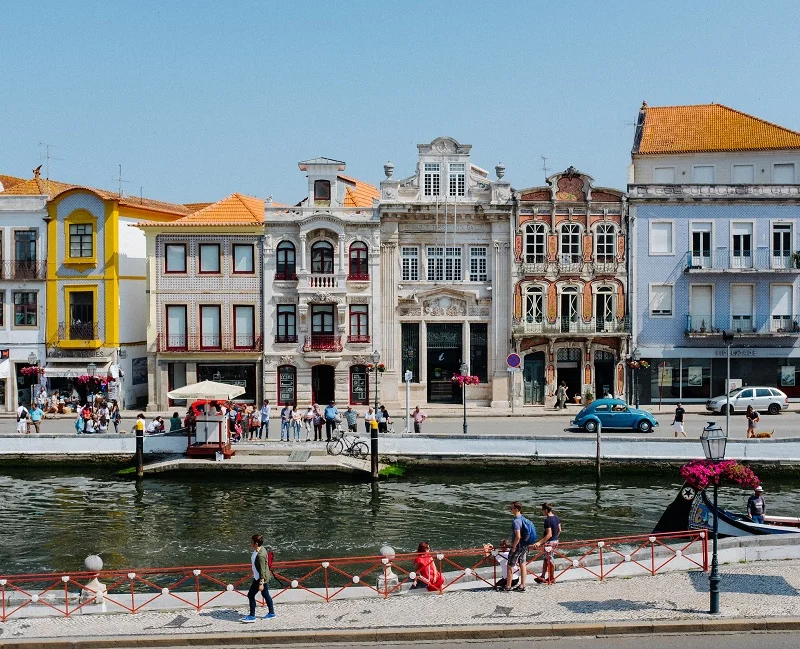
The pandemic has widened the wealth disparity significantly. Local aid workers play a key role in responding to the pandemic. Aid workers and healthcare responders are staying and delivering to the world’s most vulnerable people despite a worldwide pandemic, tremendous needs, and increased instability. As they respond to the COVID-19 crisis and the enormous increase in humanitarian needs it has sparked, these real-life heroes exhibit dedication, tenacity, and self-sacrifice, exemplifying the best of humanity.
Governments owe a duty of care to their constituents, and in many cases, they will be the first to respond to COVID-19. The coronavirus highlights the extraordinary burden that countries dealing with the virus are under to provide relief, and it reveals the limitations of donors and international humanitarian organizations in terms of their capacity to anticipate and effectively address the direst humanitarian emergencies.
However, it turns out that despite funds coming from the US and other donors, they are used for international help rather than local initiatives. This weakness has led to the observation that many local relief workers are placed on COVID-19 front lines.
Unfortunately, these people have no other option except to work and have very little money. It is regrettable that pandemic money is limited and has been distributed directly. Due to a lack of resources, the majority of the agencies are now completely useless as a result of the pandemic. Some organizations have recognized the issue and asked the big contributors, such as the US, Germany, and Japan to provide some of the funds from international aid to the local partners as it will at least enable them to escape this predicament.
Now that several pandemic-affected donor nations are cutting humanitarian help, even less money is reaching those on the front lines. The new coronavirus pandemic highlights the need for humanitarian leadership more than any other humanitarian crisis in recent memory.
It is partially understandable why the international aid system took so long to coordinate and react to COVID-19. Even if there had been a well-prepared strategy for international aid organizations to deal with a pandemic, the virus has put several nations on lock down, preventing travel and restricting access to populations who already require humanitarian aid. National and local actors are leading the way in their respective nations’ responses under these harsh circumstances.
Particularly for displaced populations who might not have access to appropriate healthcare facilities, local civil society organizations and NGOs play a crucial role in supporting and completing their health systems through awareness-raising, training on best practices, or providing direct medical care. However, there hasn’t been much progress in creating the systems required for donor governments to fund these organizations. One should therefore be aware of the hardships faced by local aid workers during a pandemic.
The COVID-19 pandemic has made remote working necessary even though it has not been practiced over the world for months. Due to safety concerns, businesses and offices everywhere in the world have been forced to open up and accept remote working.
To stop the spread of COVID-19, socially remote working practices have become the norm. To curb the spread of the virus, various nations have taken a wide range of actions. Some countries, like India, imposed total lock downs. Singapore, for example, has taken a more cautious approach to end face-to-face work. Brazil is one nation that does not value remote labor.
The majority of countries were not yet ready to accept remote labor. From Singapore, many remote workers have relocated, and the Netherlands has taken a more measured approach to social exclusion. Another country in the EU that has consistently been in the best position to carry out socially remote employment is Sweden. Various countries have taken a variety of steps to stop the virus from spreading and to increase the stability of the main digital platforms and the use of digital currency.
Another country that pioneered the way with an active strategy and expanded the alternatives for remote employment is Norway. Many countries have developed this kind of agreement in response to the pandemic-related decline in the global economy to lessen the impact on both companies and employees.
The reason behind the introduction of Digital Nomad Visa

When the COVID-19 pandemic first appeared, several governments enacted policies to mitigate its economic effects, including campaigns to enable remote work and programs to help employees keep their jobs. Many businesses have reexamined whether sending employees back to work is even necessary. To handle these changes, the Portugal government has taken the initiative to create the Digital Nomad Visa which lets remote workers who make four times the national minimum wage live and work in a beautiful European country.
Portugal has long been known for its advantages, and during the past few years, it has repeatedly been on the wish lists of digital nomads. Many retirees, families, and young professionals have moved to this Mediterranean treasure, and foreign visitors have been coming here for years. Portugal has much to offer everyone, including retirees, investors, and business owners, from the breathtaking scenery of the Algarve to the energetic, multicultural metropolis of Lisbon. The country has been a top destination for digital nomads in Portugal because of its friendly population, pleasant environment, and laid-back way of life.
Digital Nomads are remote, location-independent individuals who either are employed by a foreign company or own their own foreign company. Digital nomads are not based in any one office or worksite and instead rely on information and communications technology to complete their work remotely. They may work out of cafes, on beaches, or in hotel rooms – indeed, almost anywhere – because they have no set physical workplace. Hence it gives the employees to save on cost and help them to save during the pandemic.
Since the pandemic, Portugal has experienced an increase in foreign residents, many of whom entered on the D7 visa, also known as a “passive income visa.” It is one of the most reasonably priced schemes of its kind, requiring only a yearly income of €7,200, or roughly $7,011. Income from monthly jobs does not count, in contrast to the digital nomad visa. Since launching its Golden Visa program in 2012, the Portuguese government has encouraged foreign direct investment in startups and established companies while putting money into a reliable, high-speed internet infrastructure. If you’re a digital nomad living in Portugal, the country is fairly adept at accommodating your needs.
Types of Visas For Digital Nomads

Portugal offers two different types of visas for digital nomads. Remote employees can apply for a resident visa with a maximum five-year validity period or a temporary stay visa with a maximum one-year validity period. The two categories are quite alluring, whether you’re looking for a short-term temporary stay visa or wish to apply for a resident visa and maybe stay in the country for a longer amount of time.
A temporary stay visa enables admission and stays of up to six months in Portugal. Temporary stay visas are good for the duration of the visit and permit repeated entries. The temporary visa does not include a resident permit and is only valid for a specified amount of time. A residency visa is good for two entries and has four-month validity. The holder of a resident visa must contact Immigration and Border Services to request a residency permit during that time (SEF). One of the main benefits of the new visa is that recipients can travel within the Schengen Area without a visa and without having to go through border control.
Criteria To Apply For The Digital Nomad Visa
As of 30 October 2022 the new Portugal, Digital Nomad Visa started enabling digital nomads to establish businesses there. Remote employees, who earn at least $2,945 (€2,836) per month, or four times the Portuguese minimum wage, are eligible to apply. Remote employees can easily live and work in Portugal for up to one year with the help of the Digital Nomad Visa, a particular visa for remote workers, or they can apply for residency to stay for a longer amount of time.
The essential need for a digital nomad visa in Portugal is your salary. In the three months preceding your application, you had to have earned at least €2,800 per month, which is at least four times Portugal’s minimum salary. One of the major advantages of the program is that participants can travel freely inside the Schengen Area, a geographical area made up of 26 member states of the European Union with no external borders and unrestricted movement.
Additionally, applicants must be from outside the EEA and EU. Also, you must be self-employed or hired by an organization outside of Portugal. Naturally, these will be verified formally by tax residency documents, employment verification, and proof of income for the previous three months. The Portuguese Immigration and Border Service, often known as SEF, or a Portuguese Consulate in your home country are both places where you can apply for this visa for digital nomads.
Visa Comparison To Other Digital Nomad Programs In Europe
Portugal is a great place for remote workers because of its low cost of living, great weather, and abundance of co-working spaces. The visa comparison to various digital nomad schemes in Europe is therefore provided below.
Similar visa programs for digital nomads with monthly income criteria between €2,500 and €3,000 are being set up in several European nations, including Spain and Italy. This amounts to roughly $2,434 to a little more than $2,900. The “white card,” or digital nomad visa, issued by Hungary allows for visa-free travel inside the Schengen region and has a somewhat lower monthly income requirement of €2,000. Malta’s remote work visa is on the higher end of the spectrum, requiring applicants to have a minimum monthly salary of €2,700 or $2,804. One of the most tax-friendly visas for digital nomads, participants are excluded from all local income taxes.
The Netherlands’ “self-employed person residence permit” is one of the most difficult European visas to obtain, as it is only available to freelancers whose work is deemed “of essential interest to the Dutch economy” and who earn at least €2,634.30 in gross profit each month. While supporters of digital nomad visas claim that the programs can strengthen local economies, detractors are concerned that the flood of international remote workers would drive up housing costs in regions that are already experiencing inflation.
Conclusion
In many ways, the COVID-19 pandemic served as a spur for remote employment. If you have a Portugal Digital Nomad Visa, you are permitted to live and work there. Portugal is prepared to welcome remote workers and digital nomads to come and live in a beautiful Mediterranean country while working for a company in Singapore, the UK, or the USA while taking in the incredible culture and scenery. This is one of the most anticipated digital nomad visas of the year.
